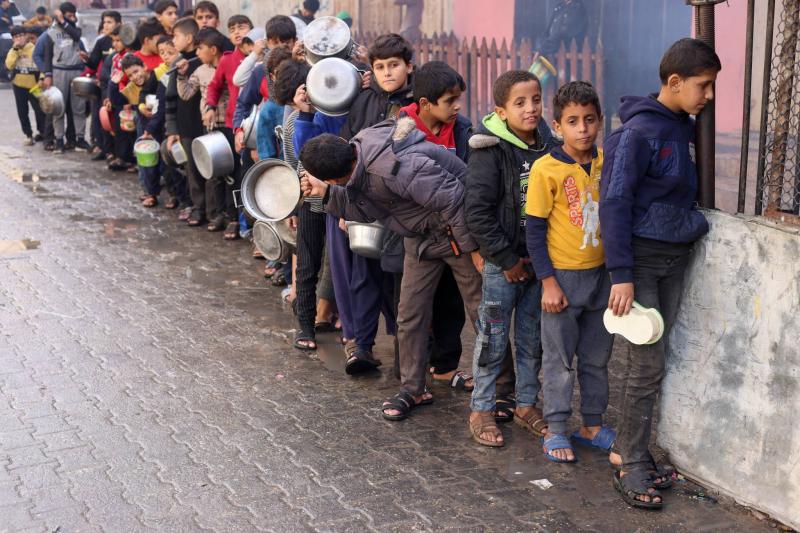The Israeli attack on Gaza, which began after the Palestinian Islamic Resistance Movement (Hamas) attack on October 7, has led to the displacement of most of the enclave's 2.3 million residents and has caused a humanitarian crisis. Here are some key facts and figures regarding the situation there:
*Displacement:*
The United Nations Relief and Works Agency for Palestine Refugees in the Near East (UNRWA) reported that more than 1.7 million people, about 75 percent of the population, have been displaced within Gaza, with many forced to relocate multiple times. UNRWA noted that it is difficult to determine more accurate figures due to ongoing fighting and frequent evacuation orders. The city of Rafah in the southern Gaza strip, near the border with Egypt, is currently the most crowded. Philip Lazzarini, UNRWA's Commissioner-General, stated that Rafah's population has nearly quadrupled to over 1.2 million since the beginning of the conflict. Many are taking refuge in overcrowded places, which aids the spread of infectious diseases. Tens of thousands are sheltering in makeshift tents and plastic coverings that do not protect them from the weather.
*Health and Hospitals:*
The World Health Organization (WHO) reported that most of the 36 hospitals in the enclave have ceased operations. It added that only 15 of these hospitals are partially functioning and are experiencing work pressure at about three times their capacity, lacking sufficient fuel and medical supplies. No laboratories are operational in Gaza, severely limiting doctors' ability to diagnose patients' conditions. Infectious diseases are spreading rapidly. Richard Peeperkorn, WHO's representative in the Palestinian territories, stated that the number of diarrhea cases among children under five has increased twentyfold in November 2023 compared to the average of the previous year. The UN agency mentioned that cases of Hepatitis A, a liver infection that can be transmitted through contaminated food and water, have been discovered. WHO Director-General Tedros Adhanom Ghebreyesus wrote on Thursday, "The inhumane living conditions will exacerbate the spread of hepatitis A; there is almost no clean water, clean toilets, or capacity to maintain hygiene."
*Food, Water, and Aid:*
Israel halted all imports of food, medicine, energy, and fuel to Gaza at the start of the war. It later allowed shipments to enter through certain crossings. However, relief officials state that security inspections, ongoing fighting, and challenges moving through an active war zone severely hinder their operations. The UN indicates that what food enters Gaza is merely a small fraction of what is needed to meet basic needs. A UN-backed report published last month revealed that all residents face levels of food insecurity. The UN Office for the Coordination of Humanitarian Affairs stated last week that Israeli authorities systematically prevent aid from reaching northern Gaza. Israel denies obstructing aid and inspects goods entering Gaza, barring materials it believes Hamas might use for military purposes. A government spokesperson held the UN’s distribution mechanism responsible for the insufficient delivery of aid to civilians in Gaza.




